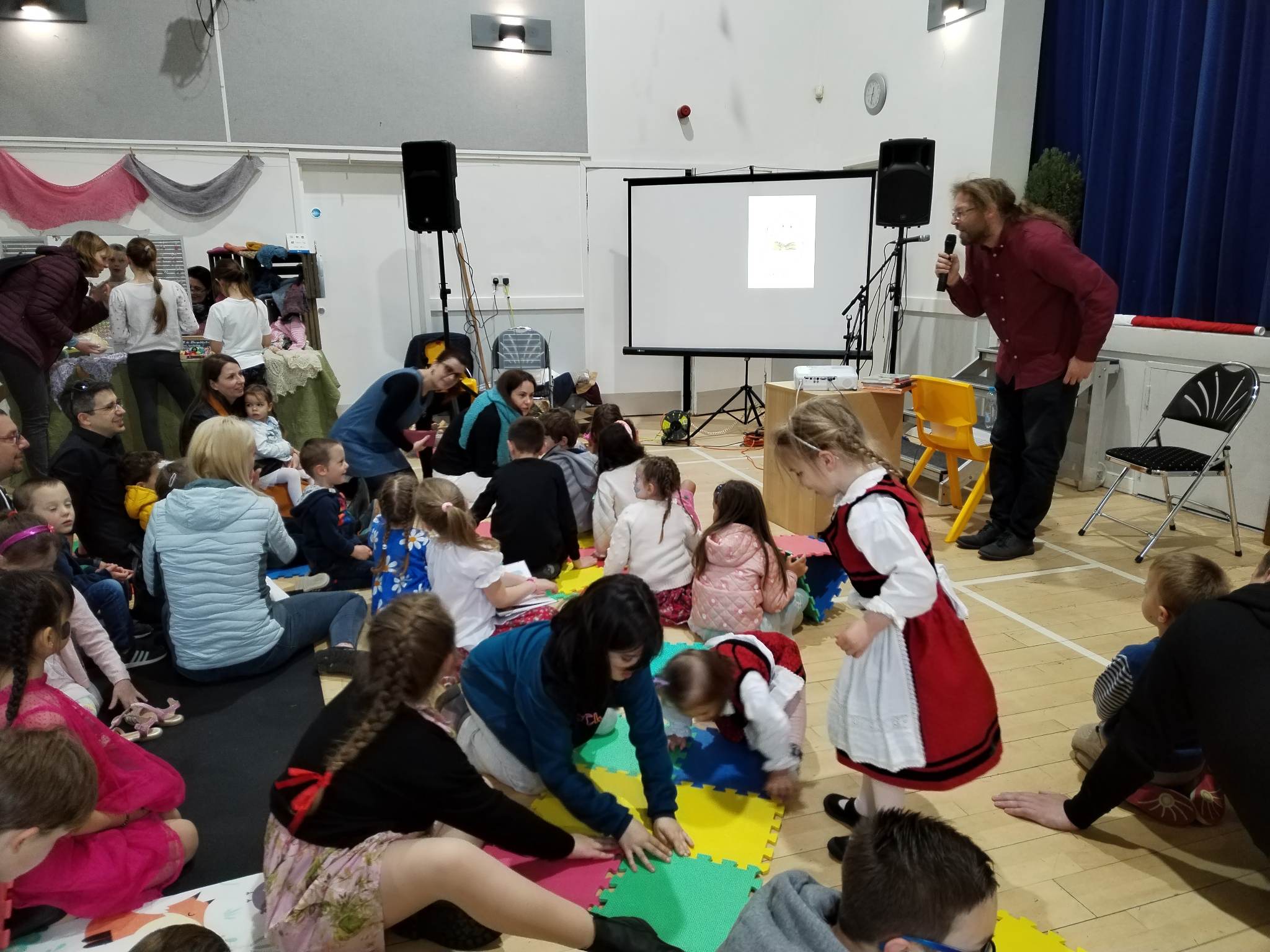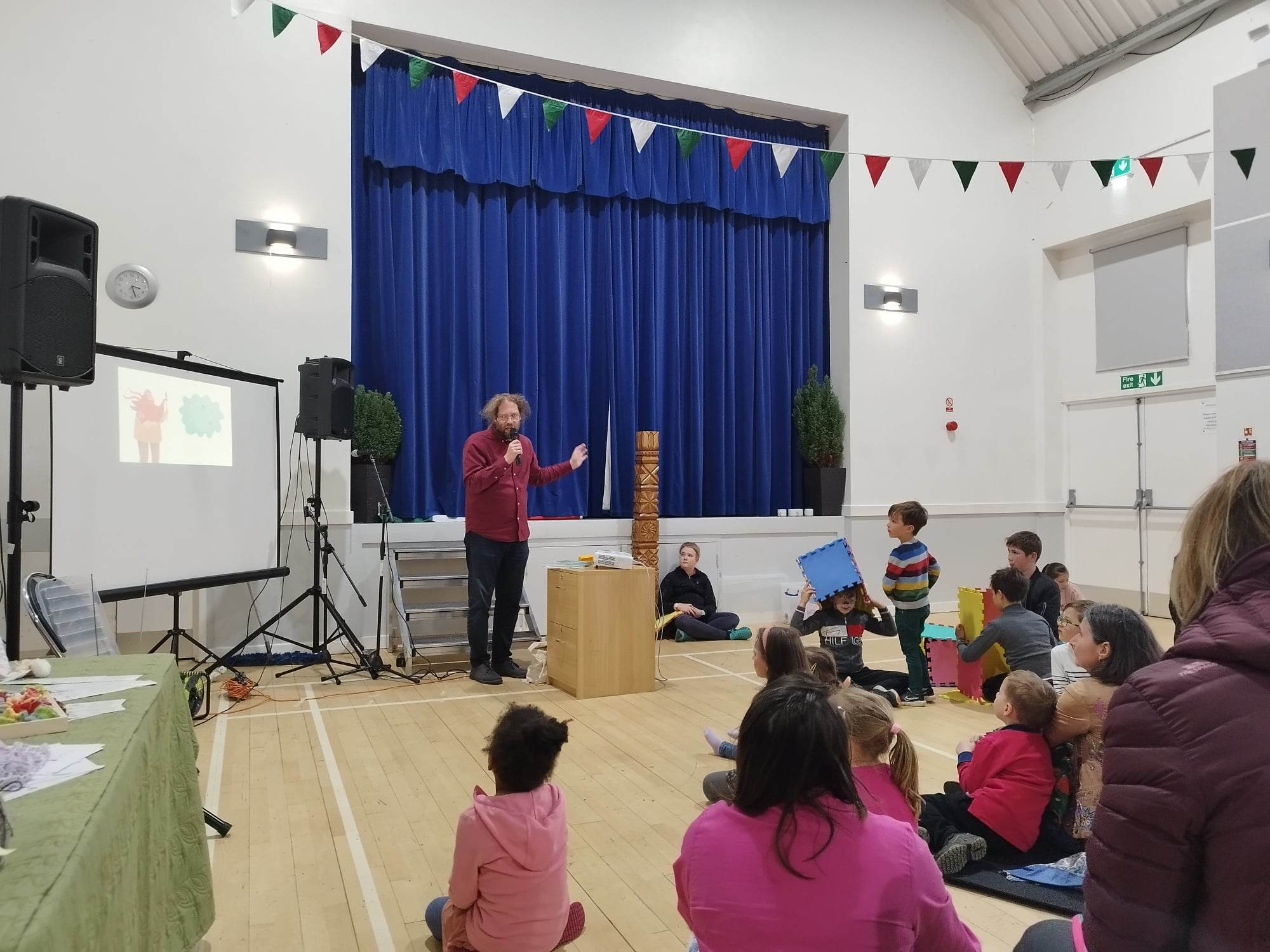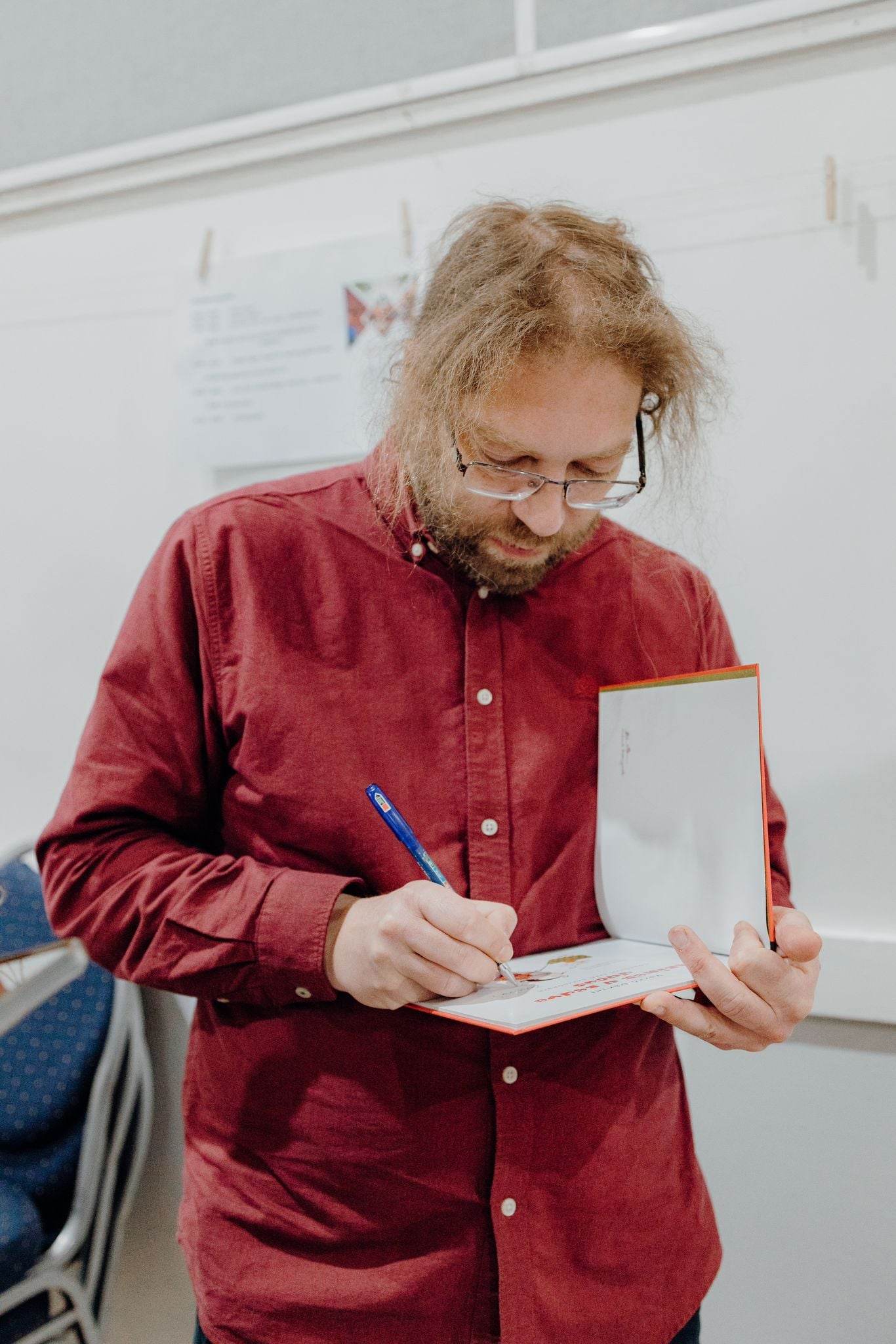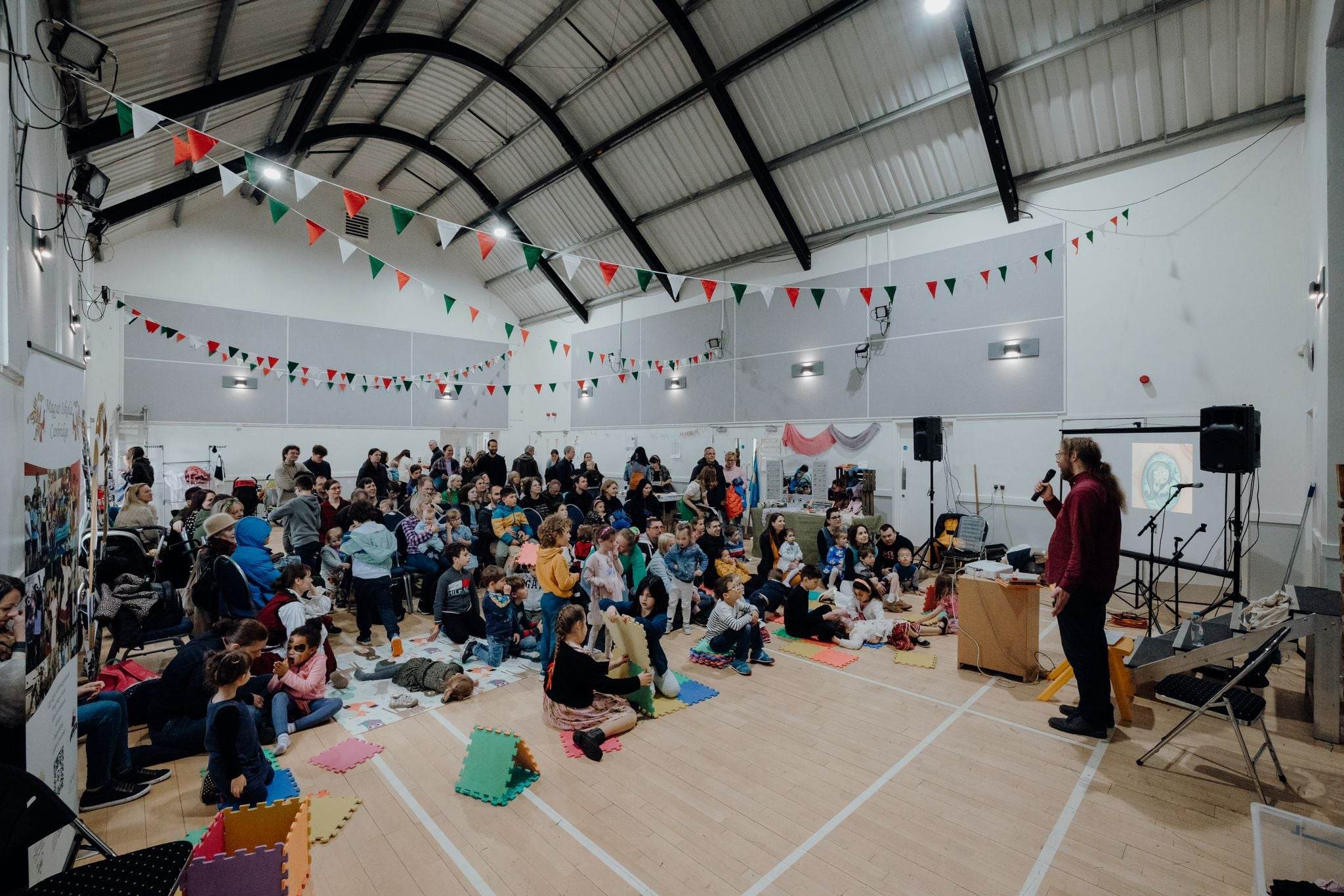Dániel Varró presented himself with two interactive programs in Cambridge
Poet and translator Dániel Varró had the opportunity to participate in the United Kingdom through the Mutasd magad! (Show Yourself!) literary transfer grant by the Petőfi Cultural Agency at the 10th anniversary event of Hungarian School in Cambridge!
Poet and translator Dániel Varró had the opportunity to participate in the United Kingdom through the Mutasd magad! (Show Yourself!) literary transfer grant by the Petőfi Cultural Agency at the 10th anniversary event of Hungarian School in Cambridge!
The Hungarian School in Cambridge was established ten years ago by a group of local parents and educators in 2013 to provide weekend education for Hungarian-speaking families. Since its inception, the number of students at the school has multiplied and today nearly a hundred students, divided into seven groups according to their age, have the opportunity to learn about the characteristics of the Hungarian language as well as the notable holidays and traditions related to Hungarian culture. Through regular Saturday sessions, children also have the opportunity to further develop and reinforce their Hungarian language skills in a playful manner among their peers of the same age. Preschoolers get to learn Hungarian children's games, circle games, poems, songs as well as stories and rhymes organized around specific themes. This naturally expands their vocabulary and makes them more conscious and confident in using the Hungarian language in their environment. In addition to improving speaking and comprehension skills, school groups also introduced writing and reading practice as well as music, singing and drama classes. The aim of their regular meetings is to strengthen and enhance the active use of the Hungarian language among children raised in bilingual or multilingual families.
In addition to language development, building the local Hungarian community is also greatly emphasized. Important tools for this endeavor are shared games and leisure activities organized for families. Examples include family Advent events, carnival and Easter craft workshops and interactive storytelling games. The ten-year anniversary of the school was celebrated with a full-day family program series, bringing together the Hungarian community of several hundred people associated with the Hungarian School.
The organizers of the jubilee event created a true Hungarian atmosphere, offering Hungarian dishes such as goulash soup, lángos, pancakes, cocoa rolls, Túró Rudi, Hungarian folk music and a Hungarian fair puppet show for Hungarian families living in England.
Dániel Varró represented Hungarian poetry with his programs. In the morning, he introduced playful poems to younger children who actively participated in the performance.
"It was a lovely moment when, in connection with animal poems written on the letters of the Hungarian alphabet, I asked them if they knew an animal starting with the letter 'dzs' and the Hungarian children living in the English-speaking area immediately responded, 'giraffe.'"
In the afternoon, the series of poetic games continued with the older children and their families, where they had to come up with rhymes. This resulted in a collectively written poetic story.
During the programs, the attendees had the opportunity to see the following books: "Thursday, the Little Devil," "The Thirsty Troll," "Beyond the Inkblot Mountain," "Nutcracker," "Azure Mug," "Heart Dessert," "Where Did It Go?"
Images of the event:
Varró Dániel két interaktív programmal mutatkozott be Cambridge-ben
Varró Dániel költő, műfordító a Petőfi Kulturális Ügynökség Mutasd magad! - irodalmi transzfer pályázata által, a 10 éves a Magyar Iskola Cambridge! jubileumi rendezvényén vehetett részt az Egyesült Királyságban.
A Magyar Iskola Cambridge tíz éve alakult, 2013-ban alapította néhány helyi szülő és pedagógus, hogy magyar nyelvű családoknak biztosítsanak hétvégi oktatást. Az induláshoz képest az iskola tanulói száma megsokszorozódott, így mára már közel száz diák életkornak megfelelően hét csoportban ismerheti meg a magyar nyelv sajátosságait, illetve a magyar kultúrához kapcsolódó jeles ünnepeket és hagyományokat. A rendszeres szombati foglalkozások keretében, a gyerekek továbbá lehetőséget kapnak arra is, hogy velük egykorú társaik körében, játékosan továbbfejleszthessék, megerősíthessék a családból hozott magyar nyelvtudásukat. Az óvodások egy-egy téma köré csoportosítva ismerhetik meg a magyar gyerekjátékokat, körjátékokat, verseket, dalokat, valamint a meséket és mondókákat. Így természetes módon bővül szókincsük, illetve a magyar nyelvű környezetben tudatosabbá, magabiztosabbá válik nyelvhasználatuk. Az iskolás csoportokban a beszéd- és beszédértés fejlesztésén kívül, az írás és olvasás gyakorlását szintén bevezették, illetve ének-zene és dráma órákat is tartanak. Rendszeres találkozásaik célja, hogy a két- vagy többnyelvű családokban nevelkedőgyerekeket megerősítsék és magabiztosabbá tegyék a magyar nyelv aktív használatában.
A nyelvfejlesztés mellett nagy hangsúlyt fektetnek a helyi magyar közösség összekovácsolására is. Fontos eszközei ennek a törekvésnek a közös játékok vagy a családoknak szervezett szabadidős programok. Ilyenek például az adventi családi alkalmak, a farsangi és a húsvéti kézműves foglalkozások, interaktív mesejátékok. Az iskola tíz éves fennállásának évfordulóját egy egész napos családi programsorozattal ünnepelték meg, amely összefogta a Magyar Iskolához tartozó, többszáz fős magyar közösséget.
A jubileumi esemény szervezői igazi magyar hangulatot varázsoltak, magyar ételek: gulyásleves, lángos, palacsinta, kakaós csiga, túró rudi, magyar népzene, magyar vásári bábjáték várta az Angliában élő magyar családokból álló közönséget.
Varró Dániel a magyar költészetet képviselte programjaival. Délelőtt játékos versekkel ismertette meg a kisebb gyerekeket, akik aktívan vettek részt az előadáson.
„Aranyos pillanat volt, amikor a magyar ábécé betűire írt állatos versek kapcsán megkérdeztem tőlük, hogy ismernek-e dzs betűs állatot, és az angol nyevterületen élő magyar gyerekek rávágták, hogy dzsiráf.”
Délután a nagyobb gyerekekkel és családjaikkal folytatódott a verses játékok sora, nekik rímeket kellett kitalálniuk, ahol még egy közösen írt verses mese is született.
A programok során az alábbi könyveket tekinthették meg az érdeklődők:
Csütörtök, a kisördög, A szomjas troll, Túl a Maszat-hegyen, Diótörő, Bögre azúr, Szívdesszert, Mi lett hova.
Az esemény képekben:



fotók: Lázár Henriette
